Minds On
Eating habits

The food we eat can change how our body and mind feel.
Healthy eating habits help the body to grow and help the mind to learn.
Student Success
Think-Pair-Share
- What types of food make your body and mind feel energized?
- What types of food make your body and mind feel tired?
If possible, share your ideas with a partner. You can also record your ideas on paper, on a computer, or as an audio or video clip.
Note to teachers: See your teacher guide for collaboration tools, ideas and suggestions.
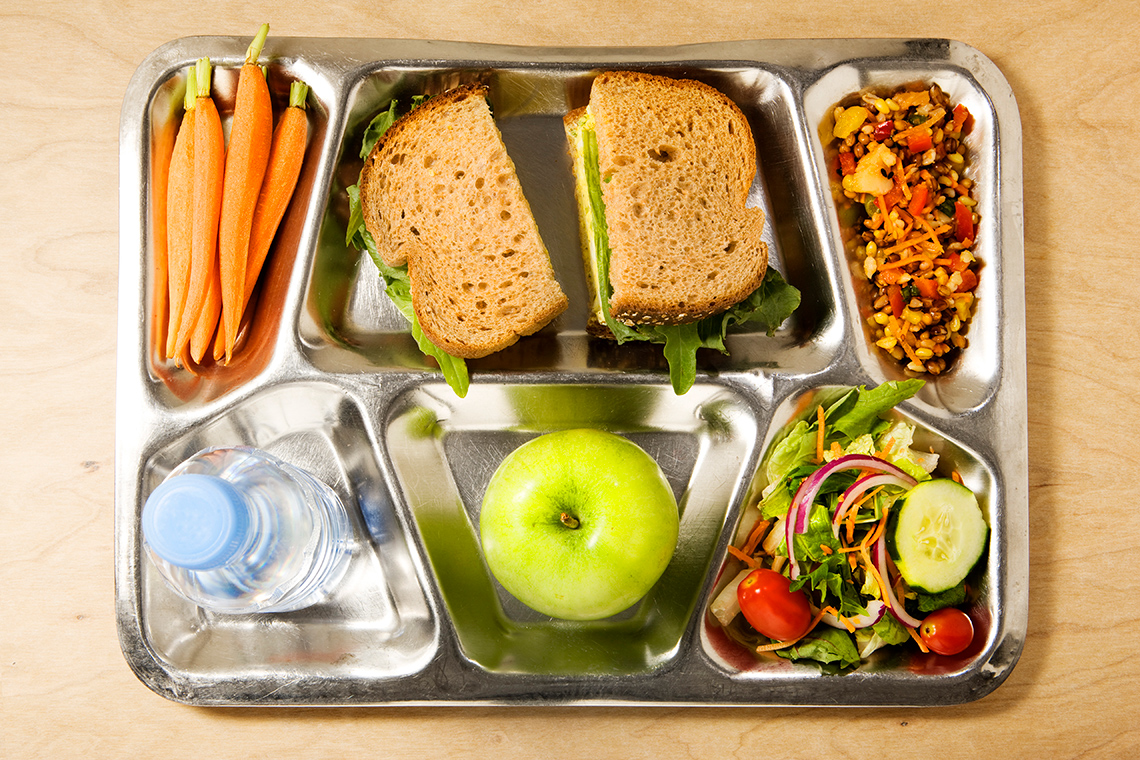
A lunch tray with carrots, a whole grain sandwich, a bean salad, a vegetable salad, an apple, and a bottle of water.
Action
Nutrients
It is very important to feed our body the food that it needs.
Eating healthy foods provides our bodies with important nutrients.
Press ‘What are nutrients?’ to explore a definition of nutrients.
Nutrients are substances that a body needs to work properly.
Our bodies need the energy from nutrients to grow and learn. Water and vitamins are examples of nutrients.
Healthy eating habits
Foods that contain lots of nutrients are healthy. There are many different types of foods that are healthy for us to eat.
Eating lots of healthy foods throughout the day gives us energy and helps us focus.
Eating lots of unhealthy foods throughout the day can make us feel tired and unfocused.
Canada’s Food Guide
Every day, your body needs nutrients that come from many types of food.
Canada’s Food Guide describes a set of rules to help you eat healthy meals and get the nutrients your body needs. It says that you should drink lots of water and try to include fruits and vegetables, proteins, and whole grains in all of your meals.
Explore the following image of a healthy meal according to Canada’s Food Guide.

Press the tabs to explore descriptions and examples of the types of foods that are part of a healthy meal.
Fruits have seeds and grow from the part of a plant that flowers. The insides of fruits are often sweet and juicy, and their skin can be thin, tough, or hard.
Examples of fruit include:
| Apples | Bananas | Berries |
| Grapes | Kiwi | Mangoes |
| Oranges | Peaches | Tomatoes |
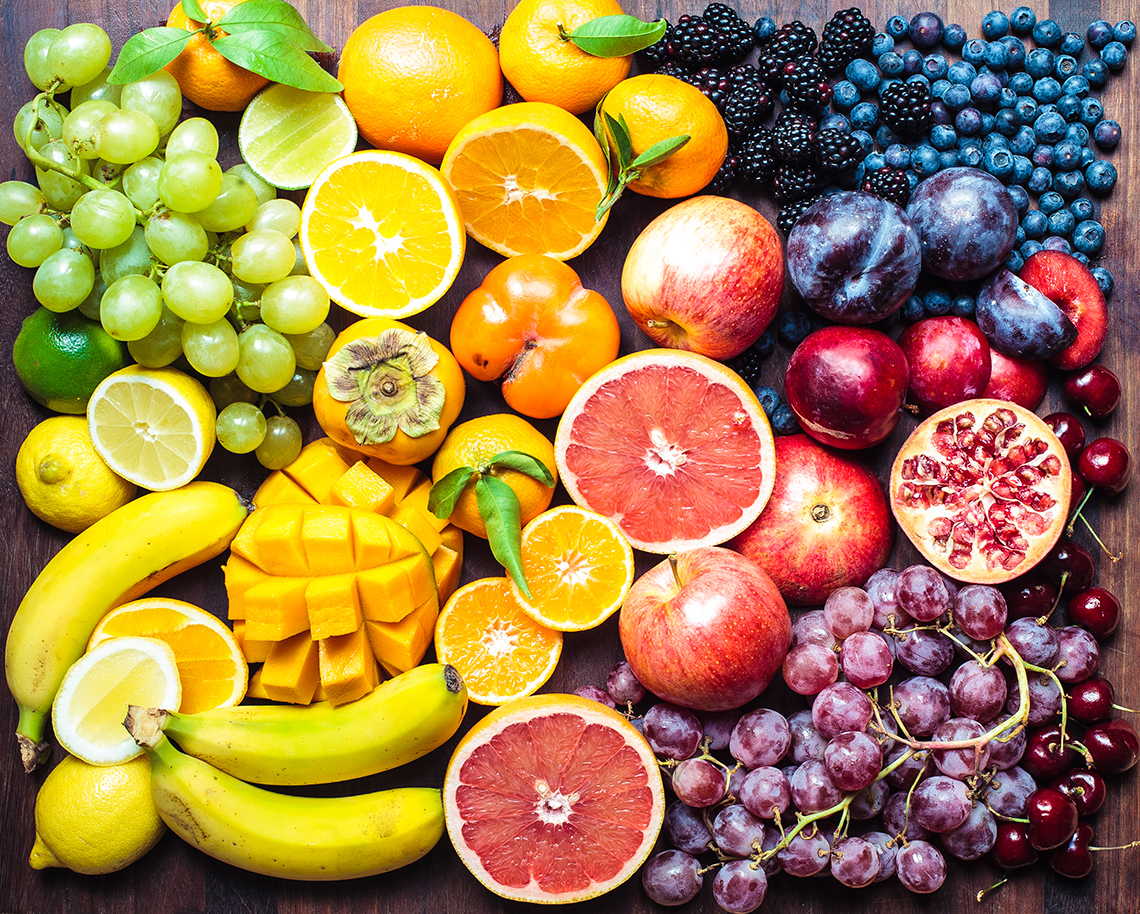
Vegetables are the part of a plant we can eat. Vegetables may be the roots of plants, the stems of plants, or the leaves of plants.
Examples of vegetables include:
| Carrots | Cauliflower | Celery |
| Garlic | Lettuce | Mushrooms |
| Onions | Spinach | Potatoes |
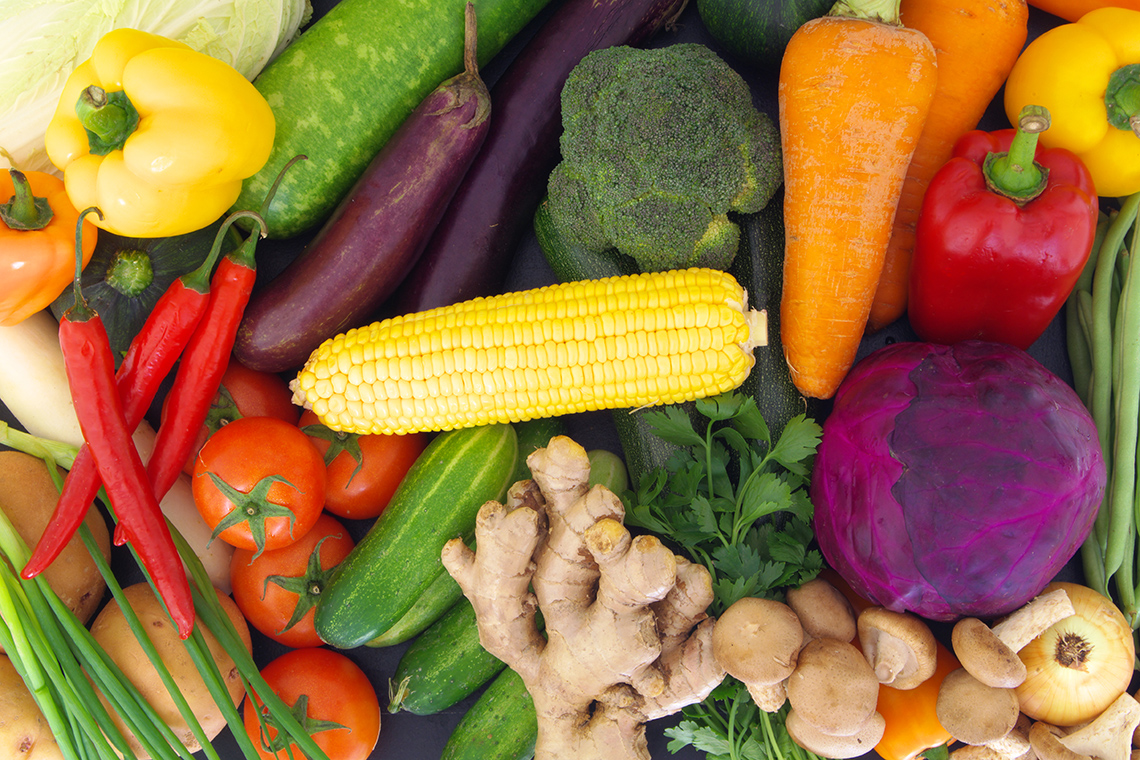
Whole grains come from plants with seeds we can eat and are a source of dietary fibre. Beans, nuts, and the skin of fruits and vegetables are also sources of dietary fibre.
Examples of whole grains and other sources of dietary fibre include:
| Beans | Whole grain bread | Whole grain brown or wild rice |
| Lentils | Nuts and seeds | Whole oats or oatmeal |
| Whole grain pasta | Popcorn | Quinoa |
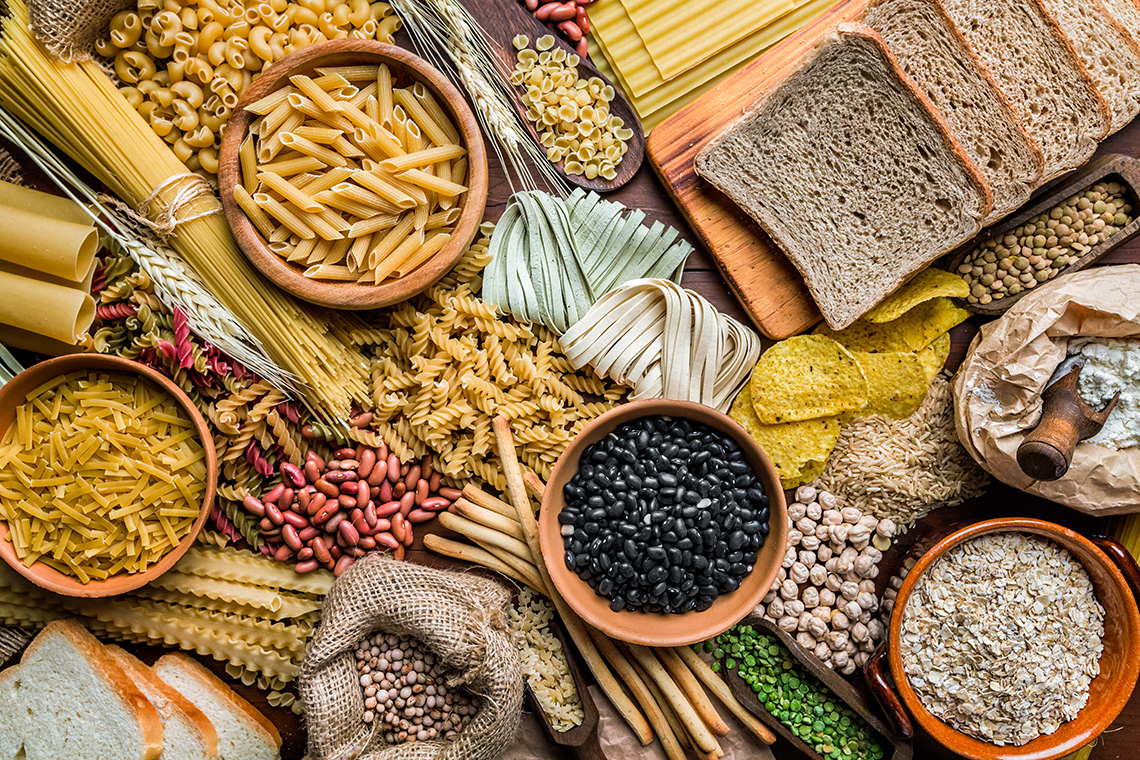
Proteins are a kind of molecule found in many types of food. They are a nutrient that helps the body grow and build muscle.
Examples of proteins include:
| Avocados | Beans | Lean cuts of beef |
| Chicken | Eggs | Fish |
| Milk, cheese, and yogurt | Nuts and seeds | Tofu |
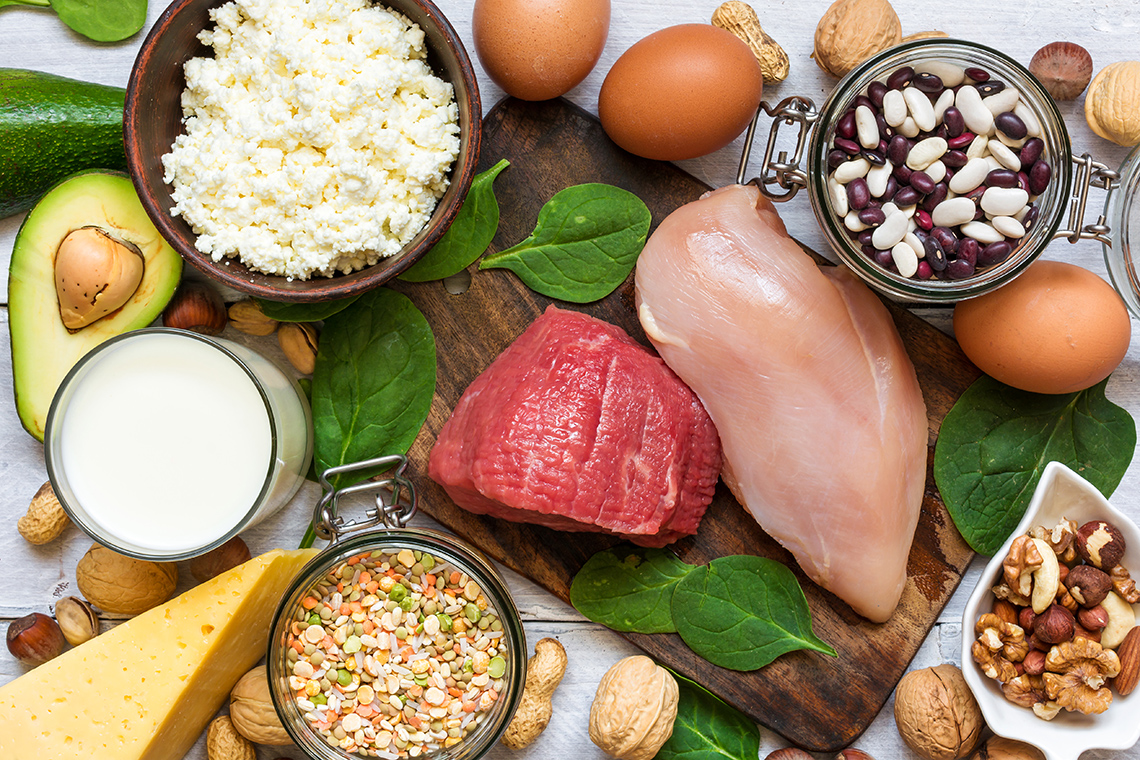
Dietary fats give the body energy to move and grow. They also help the body absorb vitamins from foods.
Examples of dietary fats include:
| Avocados | Butter and margarine | Coconuts |
| Eggs | Fish | Milk, cheese, and yogurt |
| Nuts | Seeds | Vegetable oils |
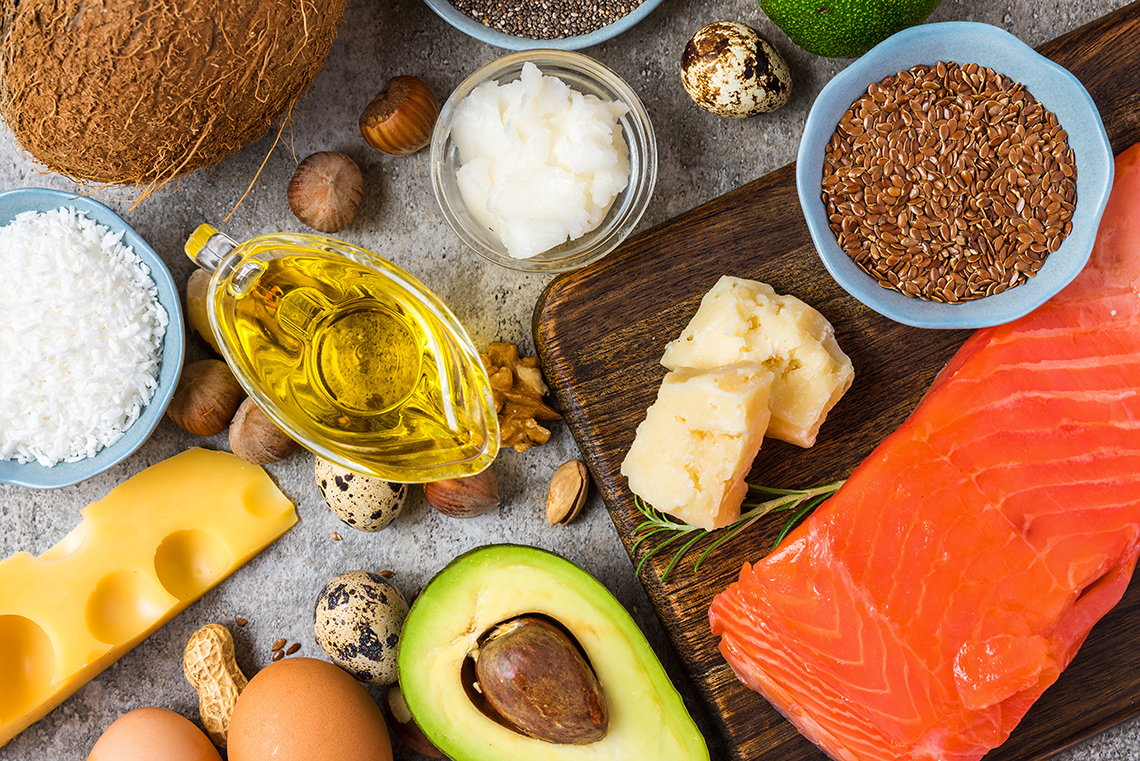
My healthy meal
You are now going to create a healthy meal by following Canada’s Food Guide. Think of the types of foods that make up a healthy meal, then include your favourite ones.
Record your healthy meal on paper, on the computer, or in an audio text.
Consolidation
My food choices
Let’s investigate the food choices that we make every day.

You are going to create a record of the food that you ate for one of your meals today.
Complete the My Food Choices activity in your notebook or using the following fillable and printable document. If you would like, you can use speech-to-text or audio recording tools to record your thoughts.
Press the ‘Activity’ button to access the My Food Choices.
| 1) Record the food that you ate for one meal today. Sort each food into the following table. | |||
| Fruits and vegetables | Whole grains | Proteins | Other |
| 2) Which two foods could you add or change to make your meal more like Canada’s Food Guide? | |||
Student Success
Think-Pair-Share
When you are finished recording your food choices, compare the food you ate today to the healthy meal that you created for our My Healthy Meal activity.
- How are they similar?
- How are they different?
If possible, share your responses with a partner. You can also record your responses on paper, on a computer, or as an audio or video clip.
Reflection
How do you feel about what you have learned in this activity? Which of the next four sentences best matches how you are feeling about your learning? Press the button that is beside this sentence.
I feel…
Now, record your ideas about your feelings using a voice recorder, speech-to-text, or writing tool.